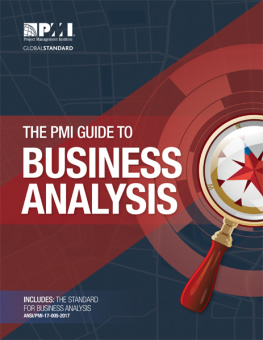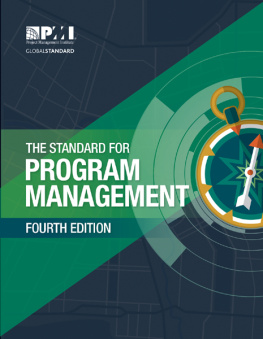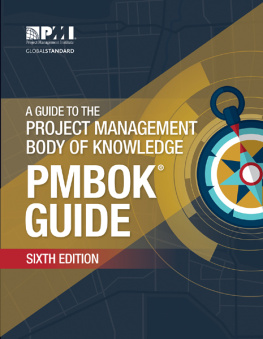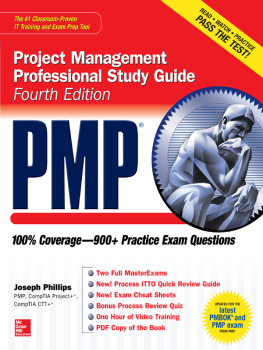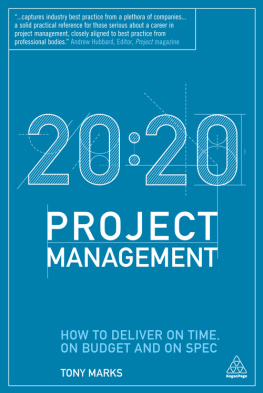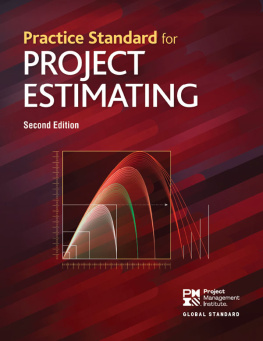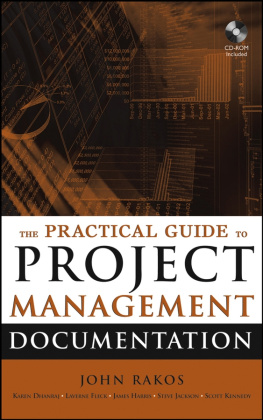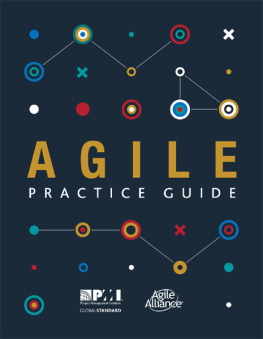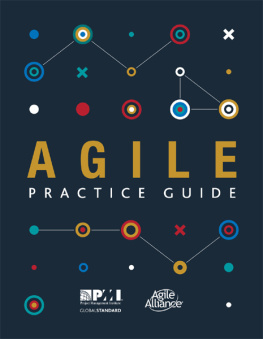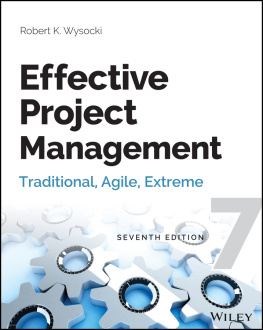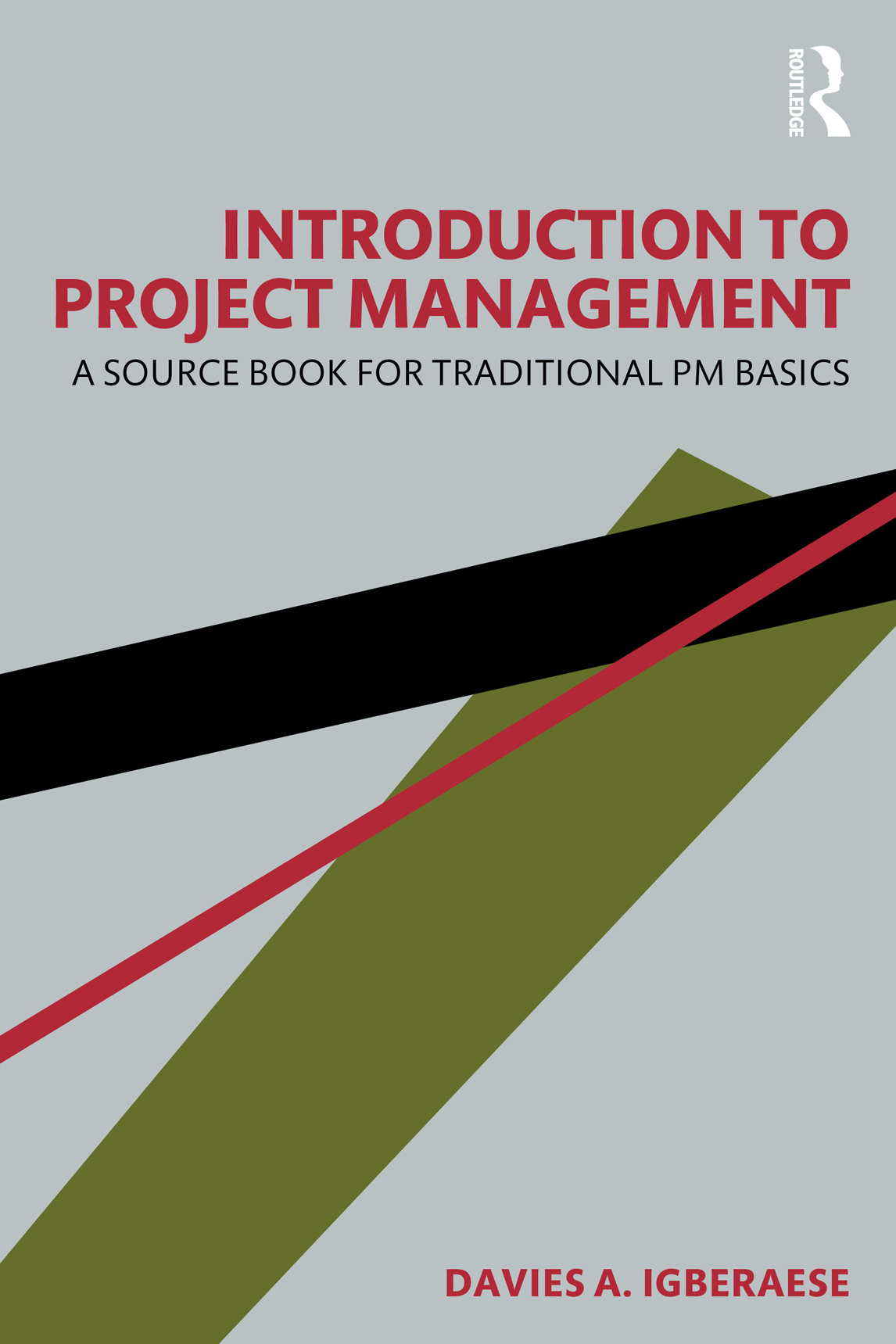
A comprehensive book of all practical aspects of project management, written by an author with an international perspective on managing complex projects.
Prof Adedeji Badiru, Air Force Institute of Technology, USA
Introduction to Project Management
This book presents the fundamentals of project management in simple language and an easy-to-understand format. It is targeted principally at those who are learning or desiring to learn project management as well as those who are already taking project management as a course of study or as a profession. It covers all the basic aspects of project management including the core areas prescribed by the Project Management Institute (PMI) in the Project Management Body of Knowledge (PMBOK) sixth edition. Although the PMBOK Guide seventh edition has significantly shifted focus from a process-based standard to a principle-based standard, it does not invalidate nor replace the detailed knowledge base contained in the sixth edition, which substantially emphasizes project management processes and knowledge areas. This is particularly apt for the traditional approach to project delivery, which is predictive in nature and has the bulk of the planning done upfront.
The sections of the book are arranged in order of Project Management Processes as they fall within the respective Project Management Knowledge Areas. Experienced project manager, Davies Igberaese, presents all the basic content of traditional project management in a straightforward practical sequence as a typical project manager would go about the processes of initiating, planning, executing, monitoring, and closing a project without losing sight of the iterative nature of project management. The inclusion of Project Management Templates gives students and other users of the book the confidence required to effectively understand the basics of managing a wide variety of projects across disciplines including construction, building, industrial engineering, petroleum engineering, software engineering, information technology, business administration, and event management. Introduction to Project Management: A Source Book for Traditional PM Basicscan serve as a core textbook for academic courses in project management, for preparing for PMP and CAPM Certification exams, as an excellent resource for new project managers, as well as a handy reference book for project sponsors.
Davies A. Igberaese is a member of the Project Management Institute (PMI) with PMP Certification. He obtained a Master of Project Management (MPM) degree in Project Management from the University of Lagos in 2004. He originally trained as an Architect and obtained a BSc degree and an MSc degree in Architecture from the University of Nigeria, Nsukka, in 1985 and 1987, respectively. He was registered as a Full Member of the Nigeria Institute of Architects (NIA) as well as the Architects Registration Council of Nigeria (COREN) in 1992 and has been involved in the design and management of many building projects in various parts of Nigeria as a Consulting Architect and Project Manager. He is currently the Managing Director and Principal Consultant of Design Collaborative Ltd, a firm of architects and project managers.
First published 2023
by Routledge
4 Park Square, Milton Park, Abingdon, Oxon OX14 4RN
and by Routledge
605 Third Avenue, New York, NY 10158
Routledge is an imprint of the Taylor & Francis Group, an informa business
2023 Davies A. Igberaese
The right of Davies A. Igberaese to be identified as author of this work has been asserted in accordance with sections 77 and 78 of the Copyright, Designs and Patents Act 1988.
All rights reserved. No part of this book may be reprinted or reproduced or utilized in any form or by any electronic, mechanical, or other means, now known or hereafter invented, including photocopying and recording, or in any information storage or retrieval system, without permission in writing from the publishers.
Trademark notice: Product or corporate names may be trademarks or registered trademarks and are used only for identification and explanation without intent to infringe.
British Library Cataloguing-in-Publication Data
A catalogue record for this book is available from the British Library
Library of Congress Cataloging-in-Publication Data
A catalog record has been requested for this book
ISBN: 978-1-032-13737-7 (hbk)
ISBN: 978-1-032-12259-5 (pbk)
ISBN: 978-1-003-23064-9 (ebk)
DOI: 10.1201/9781003230649
Typeset in Goudy
by codeMantra
Figures
Acknowledgements
I wish to acknowledge the contributions of a few individuals in the process that culminated in the publication of this book. First, I acknowledge the encouragement and input of Deji Jemiyo who is the Managing Director of Jeman Consulting. For me, he has been a friend and facilitator as far as continuous project management training is concerned. Next, I appreciate the mentorship of Engineer Bayo Adeola, the Chairman of Comprehensive Project Management Services (CPMS) Limited and the leading light of project management in Nigeria, Africas most populous country. He has authored a number of books on project management, which has inspired me on my part to write this book.
From the stable of Taylor and Francis Group, I acknowledge the professional guidance and contributions of Mr Patrick Hetherington who was assigned as my editorial reviewer and adviser, as well as the inputs of Mr Ed Needle.
On the home front, I acknowledge the continuous encouragement offered by my darling wife, Rosemary, over the years it took to prepare the raw manuscripts for this book. I also appreciate my daughter, Osereme, who was so close to my writings that she started speaking the language of project management at the age of seven.
Above all, I thank God for his divine guidance and inspiration. To Him be the glory for whatever I have been able to achieve.
Section 1 Introductory Section
Projects and Project Management
DOI: 10.1201/9781003230649-2
This introductory chapter gives the reader a refreshing background knowledge of the two major themes in the book, Project and Project Management. The term Project is clearly defined, while many of our everyday endeavours or schemes are seen to either fall under the category of Project or that of Operations. Different kinds of sectors where project activities abound are also highlighted in line with the classification offered by the Project Management Institute (PMI). In order to illustrate the growing essence of projects in todays world, this chapter emphasizes the increasing use of projects by organizations worldwide as the vehicle to attain their strategic plans which are critical to their survival and growth.
Project Management is depicted as a structured methodical approach, with outstanding benefits, used by professionals to plan a project and guide it through execution to completion. At the apex of this professional team is the Project Manager, whose roles and responsibilities have also been substantially defined in this chapter.
This chapter also sheds light on many associated topics necessary for gaining thorough background knowledge of project management, such as Project Team, Project Sponsor, Project Stakeholders, Programs and Portfolios, Project/Program Management Office, Project Lifecycle/Phases, and Project Environmental Context.
Projects
Most of what we do as an organization or as individuals falls roughly into either of two categories: Operations or Projects. Both consist of activities and processes. An operation is a set of activities or processes which goes on continuously in a steady state. A typical example is Logistics and Distribution which may be repeatedly performed every week or every month as the case may be. A clearer illustration is the Manufacturing or Production Process. In contrast, a project is a one-off set of activities and processes. For instance, building a house is a project. The organization of the London Olympics is a project. Another typical example of a project is acquiring a new or modified data system. Indeed, most of our endeavours which we may refer to as Initiative, Plan, Proposal, Scheme, Measures, Strategy, Step, Action, or New Approach have high project content. A project is about doing something new or developing new approaches and means of doing things. Projects can be regarded as the change efforts of society.
Next page

